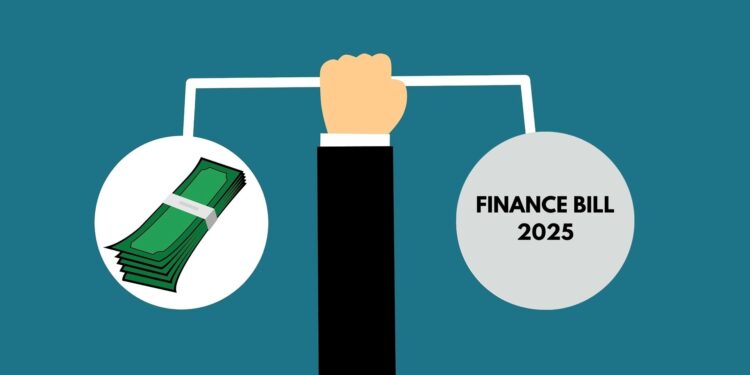The Finance Bill 2025 is set to shape the economic landscape of the country, impacting businesses, individuals, and the government’s revenue collection strategies. While the bill is yet to be officially published on government websites, discussions around its implications are already stirring public interest. Ruth Kendagor, Head of Research at the Institute of Public Finance, recently shared her insights on the bill, highlighting its green flags, red flags, and areas for improvement. Here’s what you need to know.
The Big Picture: A 4.3 Trillion Shilling Budget
The national budget for 2025 stands at a staggering 4.3 trillion shillings. While this ambitious figure reflects the government’s priorities, it also raises questions about how the funds will be raised and spent. Kendagor emphasised that the budget’s success hinges on its ability to address the needs of ordinary citizens, including housing, education, healthcare, and food security.
The government plans to finance this budget through a mix of tax reforms, debt, and other revenue-generating measures. However, the challenge lies in ensuring that these measures do not disproportionately burden citizens or businesses, especially small and medium enterprises (SMEs).
Green Flags: Positive Aspects of the Finance Bill
-
VAT Reforms: Cleaning Up Exemptions
One of the notable green flags in the Finance Bill 2025 is the cleanup of VAT exemptions. The bill proposes aligning more commodities under the taxable category, reducing revenue leakages caused by zero-rated and exempt items. While this move is expected to increase government revenue, it may also lead to higher prices for consumers.
Kendagor pointed out that research has shown tax incentives often fail to benefit citizens directly. By reducing unnecessary exemptions, the government can redirect funds to critical sectors without relying solely on tax increases.
-
Relief for Housing Loans
Another positive development is the inclusion of construction loans under personal income tax relief. Previously, only loans for purchasing ready-built houses were eligible for relief. Under the new bill, individuals who take loans to construct their homes can claim relief on the interest paid, capped at 360,000 shillings annually. This change is expected to encourage more citizens to invest in home construction, boosting the housing sector.
-
Harmonisation of PAYE Reliefs
The bill proposes a standardised method for calculating Pay-As-You-Earn (PAYE) reliefs. Employers will now compute taxable income after deducting all applicable reliefs, ensuring consistency and fairness. This harmonisation simplifies the process for both employers and employees, making tax compliance more transparent.
Finance Bill 2025 Red Flags: Areas of Concern
-
Extended Refund Timelines
One of the most contentious issues in the Finance Bill 2025 is the extension of tax refund timelines. Refunds that previously took 90 days to process will now take up to 120 days, and potentially 180 days if an audit is required. This delay could negatively impact businesses and individuals relying on timely refunds to manage cash flow.
-
Access to Personal Data
The bill includes provisions allowing the Kenya Revenue Authority (KRA) to access trade secrets and personal data held by businesses on behalf of customers. While this move aims to enhance tax compliance, it raises serious concerns about data privacy and protection. Citizens and businesses will need clarity on how this data will be used and safeguarded.
-
Impact on SMEs
Small and medium enterprises (SMEs) are likely to bear the brunt of the proposed tax reforms. Kendagor noted that SMEs often struggle with compliance due to complex systems and lack of technical support. The government must invest in simplifying processes and providing civic education to ensure SMEs can navigate the new tax landscape effectively.
Public reactions to the Finance Bill 2025 have been mixed. While some citizens hope the reforms will improve business conditions, others remain skeptical about their impact. Many feel disconnected from the technical aspects of the bill, emphasizing the need for simplified communication and civic education.
One citizen remarked, “I just want to run a successful business. Y’all come and tell me how that bill translates to me doing that.” This sentiment underscores the importance of repackaging the bill’s provisions in a way that ordinary citizens can understand and relate to.
The Way Forward: Balancing Green and Red Flags
To ensure the Finance Bill 2025 achieves its objectives, the government must address the negative aspects without undermining the positive ones. Kendagor suggested mutual responsibility as a key step forward. The government should simplify systems, make processes predictable, and provide clear information. Citizens, on the other hand, must be intentional about understanding and participating in these reforms.
The Finance Bill 2025 presents an opportunity to streamline revenue collection and address critical economic challenges. However, its success depends on transparent communication, inclusive participation, and effective implementation. As the bill moves through parliament, citizens and businesses must stay informed and engaged to ensure their voices are heard.
The government must also prioritize making the bill accessible on official platforms, such as the National Treasury and Parliament websites. This will help combat misinformation and foster trust in the process.
Ultimately, the Finance Bill 2025 is more than just a technical document—it’s a blueprint for the nation’s economic future. By addressing its green flags and red flags, we can work towards a budget that truly serves the needs of all citizens.
ALSO READ: Here Is What You Need To Know About Budget Making In Kenya












